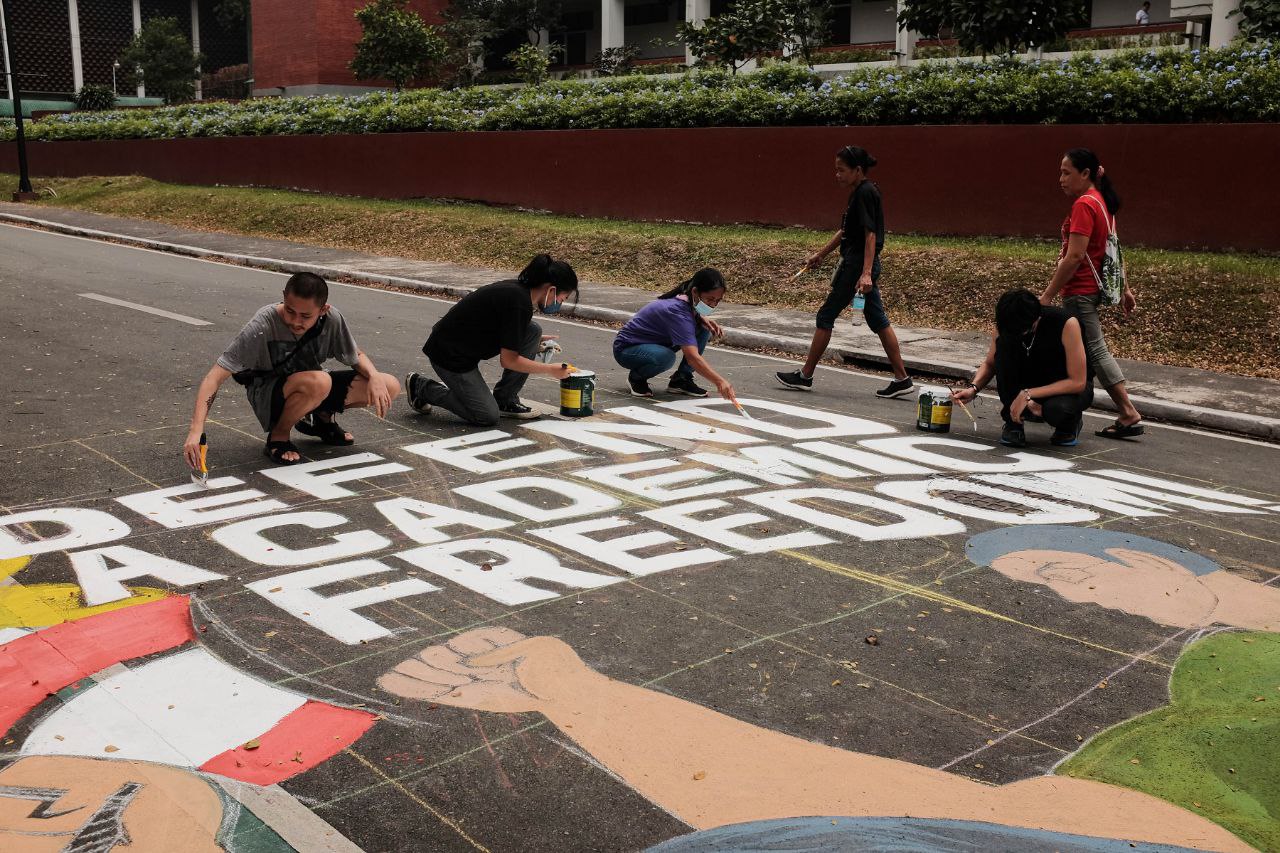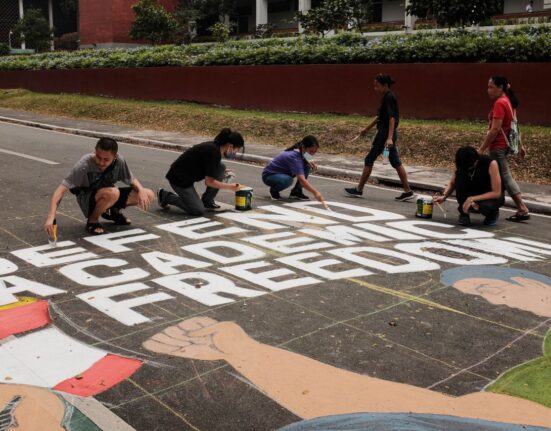Ahead of the commemoration of the 1986 EDSA People Power Revolution, 23-year-old human rights advocate and defender Macxine Medriano remains fearful about the state of activists and rights defenders in the country.
Medriano formerly worked for Kabataan Partylist, where she advocated for the rights of the youths and social change.
She is no stranger to dissent, which has also played a big role in the country’s history.
It was a massive uprising in February 1986 that ended the more than a decade-long dictatorship of the late strongman Ferdinand Marcos Sr., marking the new era of democratic leadership.
The EDSA People Power Revolution was the culmination of years of dissent against martial rule, which were marked by the detention, torture, forcible disappearance, and killing of activists and protestors.
According to Amnesty International, there were over 50,000 people arrested and detained during martial law. Some of them were lawyers, journalists, students, activists, and labor leaders.
As Medriano knows, there remain concerns about the fate of people who speak up.
According to a 2022 Global Analysis report by the Dublin-based Front Line Defenders, the Philippines ranked sixth in the world with regard to the number of human rights defenders (HRDs) killings in 2021.
There were 16 human rights defenders killed in the Philippines in the said year, it said.
“In the Philippines, the deadly phenomenon of ‘red-tagging’ is notoriously used to accuse HRDs of being ‘communist terrorists’ before targeting them with extrajudicial killings, judicial harassment, arbitrary arrests, false charges, detention, and threats,” said the report.
The report likewise noted that in countries with different political systems like the Philippines, authorities “have used a combination of legal charges and state-controlled media reports to brand HRDs as terrorists or extremists” which in turn “demonize and undermine” human rights work.
Political polarization
Under the leadership of President Ferdinand Marcos Jr, Medriano said human rights defenders and activists still face difficult conditions, and they find it strenuous to express their protests “because of the political polarization in society.”
“It has reached an extensive level wherein even on streets and other private areas, we cannot be vocal about our stances. It’s because of the prevalent red-tagging and the fear of the unknown. We are restricted from speaking our minds,” Medriano told republicasia.
Freedom has become a privilege
She also said that freedom under the present administration “has become an ultimate privilege.” Those who are currently in positions of power and who enjoy a similar level of wealth and entitlement are the ones who benefit from the so-called freedom.
This is because it’s easier for them to speak their minds without fear of being threatened as they share the same ideologies, unlike the poor and ordinary citizens. This makes the exercise of the defenders’ right to live free more difficult, she said.
“Freedom is not a license to do whatever you want to do regardless of the consequences of your actions. Rather, it is an understanding to choose what is right and what is honorable not just for yourself, but for the people around you– the civic society. It’s the essence of democracy and without it, we can certainly say that we are under a tyrant ideology,” she said.
But Filipino youth continue to fight for their rights, said Medriano. They do this not just because they are the nation’s hope, but to “preserve the rights and dignity” of the people “to make sure that everyone is treated equally.”
SUGGESTED STORIES:
PAGASA issues thunderstorm advisory from NCR and other areas
SUMMER rain? While the sweltering temperature is might be felt.
Breaking or breakdancing, a new sport in Olympics
WHO would have expected this to become a sport? The.
Hair guide for ‘lagkit’ dry season
YOUR skin might be soaking wet under the sun, but.
Dissent matters
And although dissent has been affected by polarized perceptions driven by misinformation and targeted attacks, Medriano said it is a crucial part of Philippine democracy because “it balances life and without it, democracy will not survive.”
Dissent mitigates oppressions, blind following, and tyranny. It helps in the progress of political participation, economic growth, and it creates a discussion of what is best for society”
Macxine Medriano
She also said that while everyone is entitled to their opinions, that entitlement can only be achieved if everyone is “open to dissenting conversations.” She added that the country would not progress if its people won’t listen and they would resort to red-baiting their countrymen with opposing views.
“Hindi mag-grow ang isang bansa, lalong lalo na ang bansang Pilipinas, kung hindi tayo makikinig sa isa’t isa. Walang sinuman ang nakakaalam o nakalalamang – lahat tayo may kani-kaniyang pananaw. At yun ang gagamitin natin para makamit ‘yung tinatawag na “kaayusan sa lipunan,” she said.












